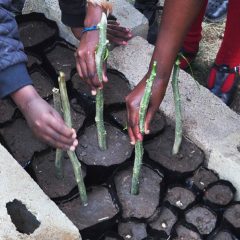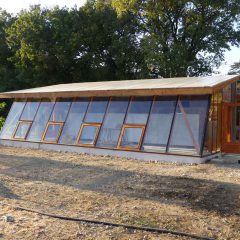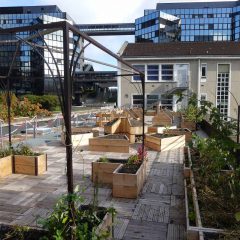You can very easily make compost yourself:
It is a smart way to use kitchen waste, and other organic waste from the garden.
You can put in the compost:
-All vegetable waste from the kitchen: vegetable peelings and other natural waste but no cooked meat, fish or cheese
-All organic waste from the garden if they are small enought (cut grass, faded flowers, dead leaves)
It is better to avoid:
Citrus because their skin is often treated with chemicals (unless they are organic).
– Some leaves that decompose too slowly, such as laurel for example, or coniferous spines that are too acidic.
It is the internal temperature that helps the developement of organisms that can transform the waste. In winter, the life of the compost is slowed down, but to avoid a too great drop in the internal temperature it is wise to cover the pile of compost. In the spring, the life of the compost is awakened by exposure to the soft heat of the sun. It must also be stirred to aerate it. However in summer it is necessary to avoid exposing the compost to the full sun because it would dry out. The compost must remain moist but not soggy.
To be used, the compost must be “mature” (the decomposition is then finished). In fact, the internal life of compost consumes nitrogen, which is also necessary for plants. Applying unmatured compost is therefore a competition for crops in the search for nutrients.
In the same category :






